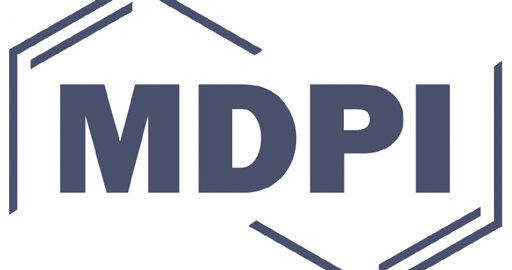What We're Reading
By Joy Burkhard, MBA
Founder and Executive Director, 2020 Mom
In the last 30+ days, these are the articles and issues that caught my eye. I noticed a good dose of the hard to hear facts about mental health, and also articles about hope - how to solve for racism in health care, how telemedicine is finally getting its day (from payors, where the rubber meets the road), and hope for the Affordable Care Act. There is also an interesting new piece of research about circadian “misalignment” in shift workers, which could have interesting implications for mothers who may also be “misaligned” with circadian rhythms/sleep.
Have thoughts about these articles? Please let us know what you are thinking by dropping a comment in the comment box below.
Here’s to a new day – happy reading.
Experts Fear Suicide, Deaths Of Despair Will Rise In Wake Of Covid-19: Mental Health Crisis
The crisis hotline of Didi Hirsch Mental Health Services, a nonprofit mental health organization in the Los Angeles area, lit up with callers, with 20% expressing “suicidal desire,” an organization report said. And in April, when 20.5 million people had lost their jobs, text messages to the federal disaster distress hotline spiked by over 900%. For years America had been reeling from a steady rise in “deaths of despair,” which are defined as deaths by suicide or associated with alcohol or drug use.
Read more here.
Health Equity As A Key-Value In Value-Based Payment And Delivery Reform
Here’s how to go beyond identifying the persistent health disparities in our health systems: take concrete steps related to performance measurement, reimbursement, and care delivery.
Read more here.
Thanksgiving and Indigenous Mental Health
For many indigenous Americans, Thanksgiving is not just problematic — it commemorates genocide, dispossession, forced removal, and cultural erasure. This emotional gauntlet has mental health implications that we discuss in this episode of our podcast, Into the Fold.
“We tend to think that settler colonialism and trauma happened so many centuries ago and that it is no longer relevant, but I would encourage people to critically interrogate what it means to experience intergenerational trauma.”
Read more here.
Cigna Issues New Permanent Telehealth Reimbursement Guidelines
According to the Center for Connected Health Policy, Cigna is the first of all major carriers to release a new permanent telemedicine policy, to go into effect Jan. 1, 2021 (as federal requirements requiring insurers to cover telemedicine due to COVID sunset on Dec 31). The policy details and includes reimbursement for live video delivered services for certain CPT/HCPCS codes if certain conditions are met, and allows for reimbursement of telephone-delivered services when the appropriate telephone code is billed.
Read more here.
From Preproduction to Coproduction: COVID-19, Whiteness, and Making Black Mental Health Matter
"The vision is thus not merely to decolonialise prevailing Eurocentric theories within both psychiatry and clinical psychology training, but to develop transcultural, anti-racist, and inclusive models.”
Read more here.
Suicidal Thoughts During Pregnancy and Postpartum Are On the Rise
Suicidal ideation among individuals during pregnancy and in the first year after giving birth has increased in recent years. In a study of nearly 600,000 individuals, scientists found that suicidal ideation — although still rare — increased from a rate of 0.1% per 100 individuals in 2006 to 0.5% per 100 individuals in 2017. Intentional self-harm also increased slightly, as did diagnoses of suicidality along with other mental health conditions such as depression and bipolar disorder. Increases in suicidal ideation during pregnancy and postpartum were higher among Black individuals, those with lower incomes, and younger mothers. Policymakers and clinicians ought to ensure universal screening for suicidal thoughts among pregnant and postpartum individuals, the authors suggest.
Read more here.
Mindfulness Training During Pregnancy Reduces Risk of Postpartum Depression
The US Preventive Services Task Force (USPSTF) issued recommendations that all pregnant and postpartum women should be evaluated in order to determine risk for depressive illness and recommends that women at increased risk for perinatal depression should be referred for counseling. While these recommendations focused primarily on the utility of cognitive-behavioral therapy (CBT)...
Read more here.
Variation In The Effectiveness Of Collaborative Care For Depression: Does It Matter Where You Get Your Care?
Randomized controlled trials have demonstrated that the collaborative care model for depression in primary care is more effective than usual care, but little is known about the effectiveness of this approach in real-world settings. Jürgen Unützer and coauthors used patient-reported outcome data from 11,303 patients receiving collaborative care for depression in 135 primary care clinics to examine variations in depression outcomes.
Read more here.
Breaking Barriers So Psychedelic Experiences Can Become Mainstream
Rachel Aidan, CEO at Synthesis Institute
Researchers, entrepreneurs, and investors agree that psychedelics drugs will eventually become legal because of conscious-expanding drugs’ mental health benefits. Evidence finds hallucinogenic drugs help with depression, panic disorder, post-traumatic stress, and addiction, as well as feelings of well being and interconnectedness.
Read more here.
More Than Half of Private-Sector Employees Enrolled in High-Deductible Health Plans
About 55 percent of private-sector workers who received health insurance in 2019 were enrolled in high-deductible plans, according to a new chartbook from AHRQ. The percentage of employees in high-deductible plans has grown steadily since 2006, when only about 11 percent of private-sector workers with single coverage were in such plans. Access the chartbook and an interactive data visualization tool that allows users to explore data on employee cost-sharing, including geographic variations.
Postpartum Depression Symptoms Could Be Present Three Years After Giving Birth, Study Finds
One-quarter of mothers in a population-based birth cohort had elevated depressive symptoms in 3 years postpartum. Screening for maternal depression beyond the postpartum period may be warranted, particularly after mood and diabetic disorders.
Postpartum depression symptoms could be heightened up to three years after giving birth, according to a new study. Scientists assessed depression symptoms in nearly 5,000 U.S. women at four months, one year, two years, and three years after they gave birth. Overall, the rate of women who had moderate levels of postpartum depression at each of the time points was low, at 1 in 10 or fewer. However, one-quarter overall still reported high levels of depressive symptoms at some point in the three years after giving birth. Women with underlying conditions such as mood disorders were more likely to experience symptoms throughout the study duration. The American Academy of Pediatrics currently recommends that women be screened periodically up to six months after birth, but extending that to at least two years postpartum may be beneficial, the authors suggest.
Read more here.
Patients with Mental Illness a Priority for COVID Vaccine, Experts Say
With a limited supply of initial doses, the question becomes, who should get it first? Individuals with severe mental illness should be a priority group to receive a COVID-19 vaccine, assert the authors of a perspective article published November 1 in World Psychiatry.
Read more here.
Getting Our Knees Off Black People’s Necks: An Anti-Racist Approach to Medical Care
“As a prime example, health care providers initially ignored Serena Williams’s complaints of shortness of breath after giving birth, only to diagnose her with a life-threatening pulmonary embolism after she demanded a CT scan. An anti-racist approach would have communicated respect for Ms. Williams’s self-report, considered her elevated risk of mortality, and immediately evaluated her complaint….In 2019, one of the authors observed a clinician ignore a young, suicidal Black woman’s pleas for help.
Read more here.
A New Hippocratic Oath Asks Doctors To Fight Racial Injustice And Misinformation
First-year medical student Sean Sweat "didn't want to tiptoe around" issues of race when she sat down with 11 of her classmates to write a new version of the medical profession's venerable Hippocratic oath.
Read more here.
Circadian Misalignment
A major reason shift workers are at higher risk for obesity and diabetes, according to research from the University of Missouri School of Medicine, has to do with the way cells in our bodies react. What happens is a condition termed ‘circadian misalignment’ where your brain is unable to shift from its natural biological clock and the shift work schedule.
Right now, researchers are using this cellular reaction to study possible ways to reduce night shift work health effects, with the possibility of gene therapy in the future.
Read more here.
To Cope with Pandemic Stress, Many Women Turned to Alcohol, Continuing a Worrying Trend
Alcohol-related deaths for women, and particularly rural women, have been on the rise in recent years. This trend is now being exacerbated by the COVID-19 pandemic as women facing isolation and stress look to alcohol as a coping mechanism. Read more here.
Ten Years After Its Passage, The Affordable Care Act Seems Likely To Survive Latest Supreme Court Challenge
On Tuesday, the high court will hear the latest major challenge to the law, one based on Congress' elimination in 2017 of the tax penalty intended to prod consumers to buy health insurance. Challengers, led by Texas and backed by the Trump administration, contend that the mandate is unconstitutional without any tax to enforce it.
Despite last month's Senate confirmation of Associate Justice Amy Coney Barrett, which gives conservatives a 6-3 majority, most court-watchers predict the challenge isn't likely to topple the 10-year-old statute. Even if the justices are receptive, a majority of them are considered unlikely to strike down the entire law, as opponents want.
Read more here.

















